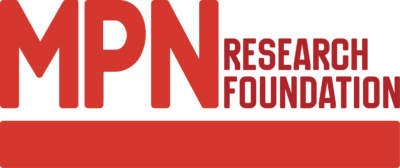With your support, The MPN Research Foundation has funded research that has resulted in a better understanding of Polycythemia Vera, Essential Thrombocythemia and Myelofibrosis. The publications linked below are funded by MPNRF and will be presented at the 60th Annual American Society of Hematology meeting in San Diego this December.
Funding research projects like these are Why We Are Here. With research, there is hope for better therapies and eventually a cure for MPN
4333 Differential Impact of Interferon Alpha on JAK2V617F and Calr Mutated Hematopoietic Stem and Progenitor Cells in Classical MPN
Classical BCR-ABL-negative myeloproliferative neoplasms (MPN) include Polycythemia Vera (PV), Essential Thrombocythemia (ET) and Primary Myelofibrosis (PMF). They are acquired clonal disorders of hematopoietic stem cells (HSC) leading to the hyperplasia of one or several myeloid lineages. They are due to three main recurrent mutations affecting the JAK/STAT signaling pathway: JAK2V617F and mutations in the calreticulin (CALR) and thrombopoietin receptor (MPL). Interferon alpha (IFNα) is the only drug that not only induces a hematological response in ET, PV and early MF, but also a significant molecular response on both JAK2V617F or CALR-mutated cells.
Our broad aim was to understand the mechanism of action of IFNα. Previously, our group and others have shown that IFNα specifically targets JAK2V617F HSC in a chimeric JAK2V617F knock-in mouse model. In this study, we wanted to know how and how fast IFNα impacts the different mutated human hematopoietic compartments.
3051 Investigating the Role of the Gut Microbiome in the Inflammatory State of Myeloproliferative Neoplasms
The human microbiome is composed of trillions of micro-organisms living in symbiosis with the human body. The interest in the microbiome and the clinical impact of its disruption (dysbiosis) has grown exponentially in the past years, especially in the oncology field. Microbiota plays an instructive role in chronic inflammatory disorders and determines response to checkpoint inhibitors cancers, such as melanoma. Increased inflammation in myeloproliferative neoplasms (MPN) drive many of the symptoms associated with this disease and inflammation also likely plays an important role as a driver of the disease. We hypothesized that the microbiome may be dysregulated in MPN which could contribute to the increased inflammatory cytokines seen in this disease and that the microbiome could also potentially impact symptom burden.
3062 Aberrant Cytokine Production in Myelofibrosis Is Not Rectified By Ruxolitinib and Is Differentially Sensitive to Inhibition of JAK/STAT, MAP Kinase, and NFkB Signaling
Inflammatory cytokine production is characteristic of myeloproliferative neoplasms including myelofibrosis (MF). Clonal dominance and bone marrow fibrosis have been attributed in part to cytokine overproduction. Elevated plasma levels of several cytokines have been associated with decreased survival in MF patients; notably IL-8/CXCL8, which has been associated with transformation to secondary acute myeloid leukemia (sAML; Tefferi et al., 2011, J. Clin. Oncol.).
52 Specific & Synergistic Targeting of JAK2V617F Cells By Interferon Alpha & Arsenic
We have shown in clinical trials and preclinical studies on Myeloproliferative Neoplasms (MPN) that interferon alpha (IFN) is able to specifically target JAK2V617F cells. However, achievement of complete molecular responses is rare and often requires long-term exposures to IFN, increasing the risk of toxicity. The mechanism implicated in the specific targeting of JAK2V617F cells remains elusive and its elucidation is crucial to improve the efficiency of IFN therapy. PML is an IFN transcriptional target that drives the assembly of PML-nuclear bodies (NB), activating P53 or RB checkpoints and ultimately leading to cell cycle arrest or senescence. We explored the hypothesis that PML may contribute to IFN efficacy. This would then predict an enhancement of IFN activity by arsenic (AS), a potent inducer of NB formation.
